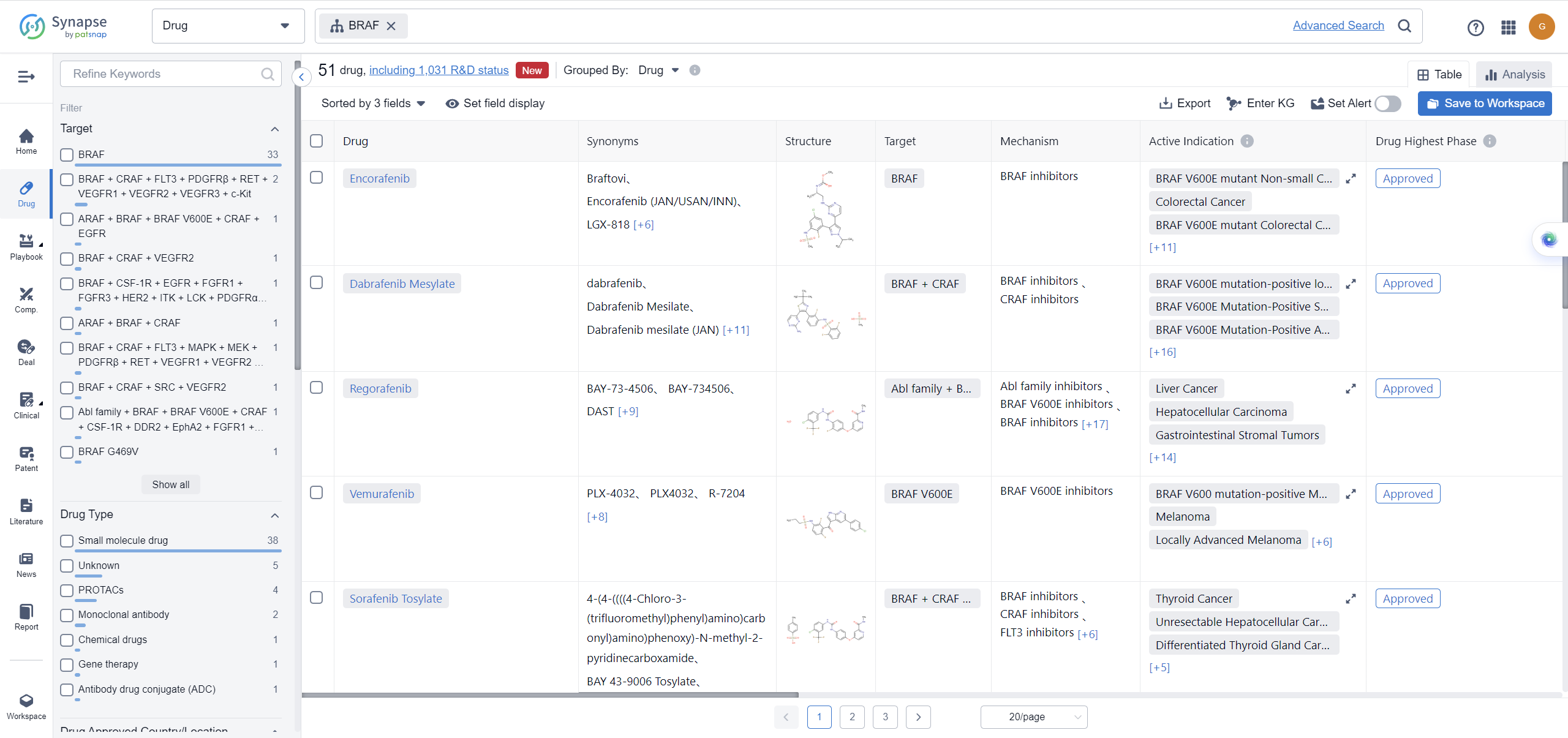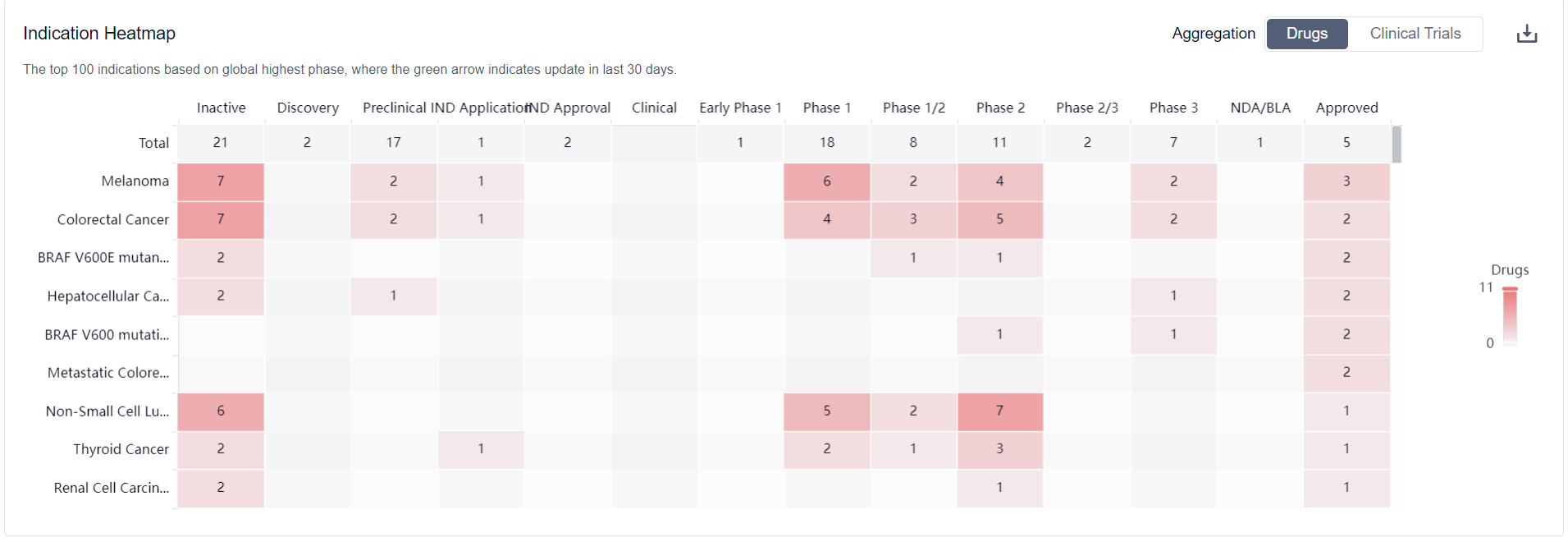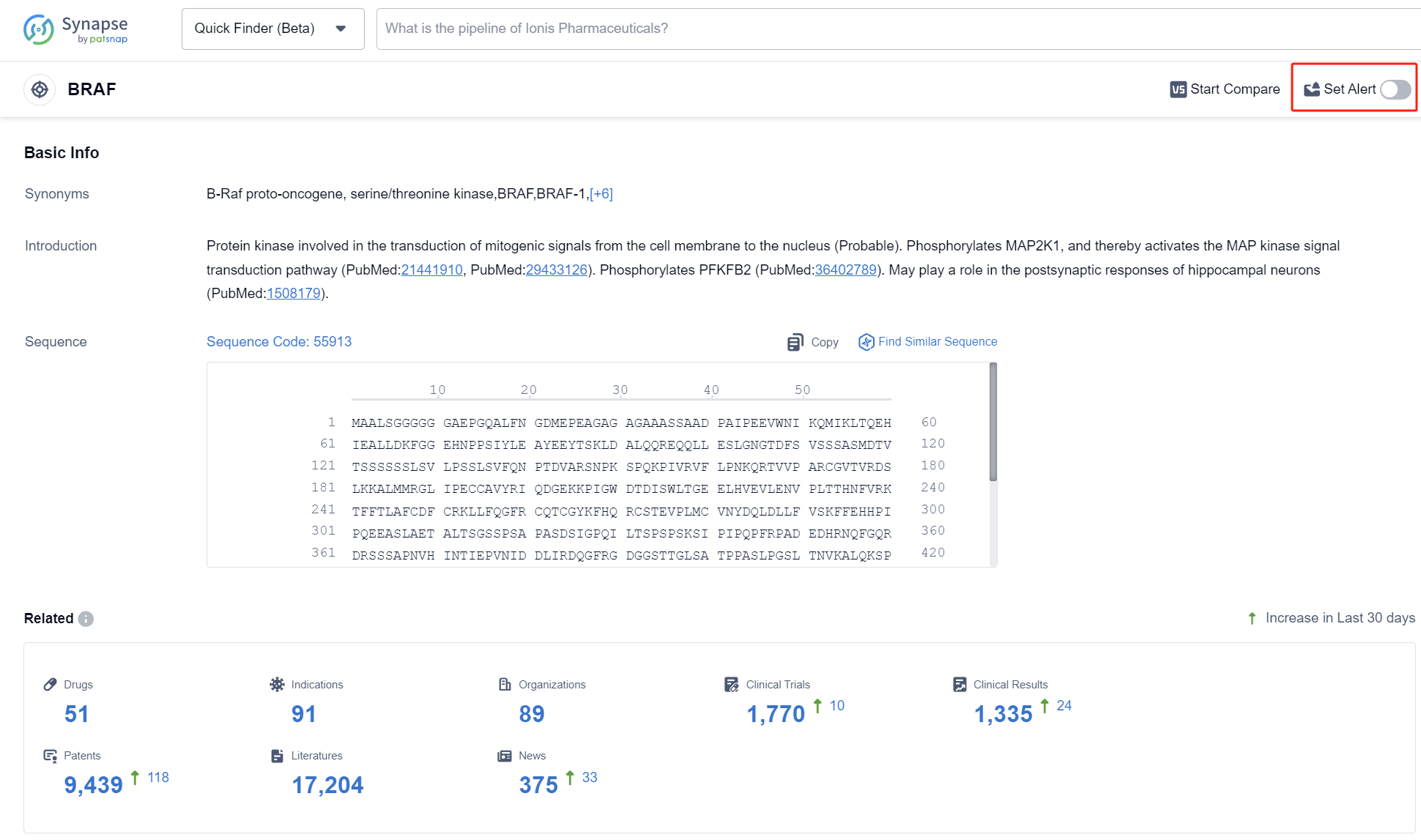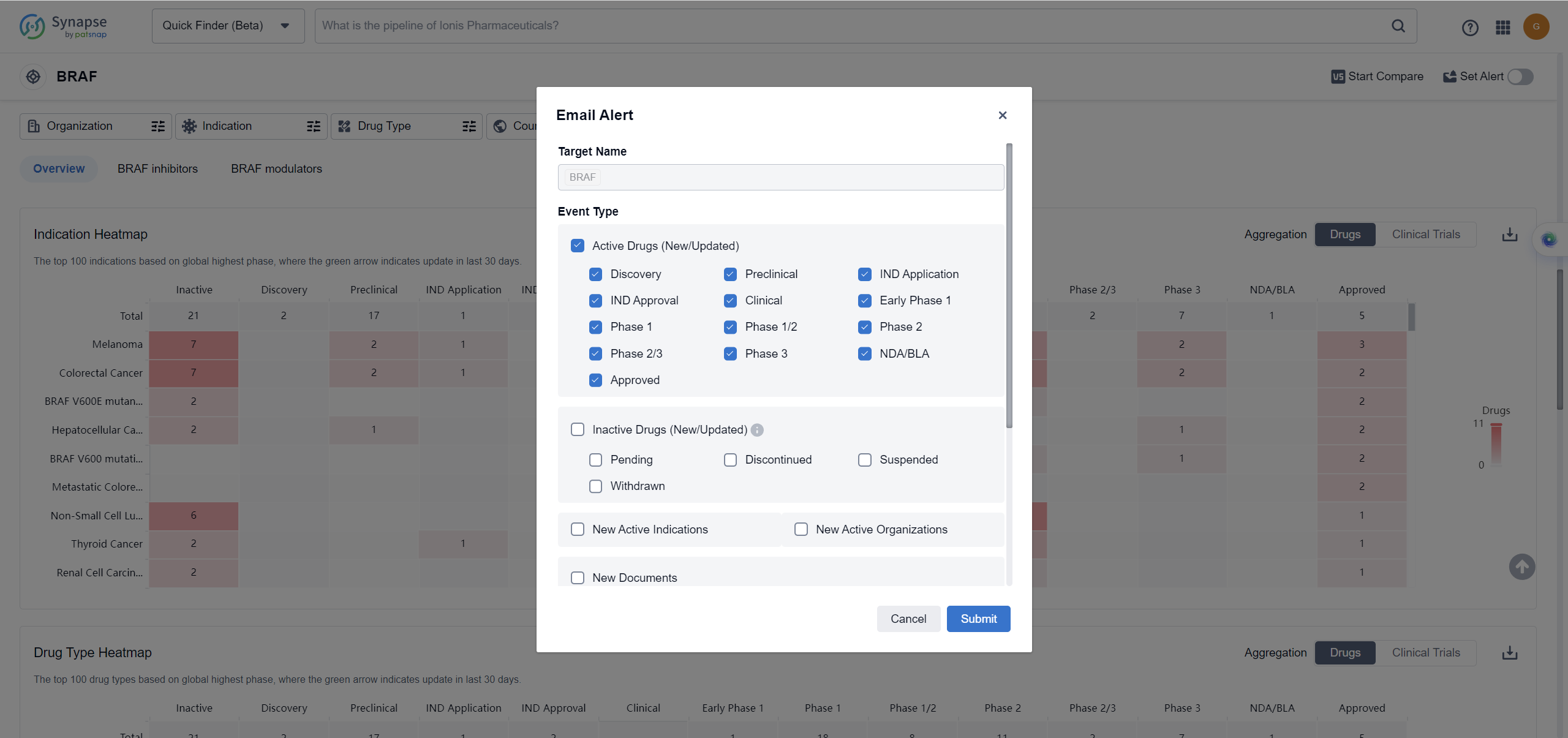What are BRAF inhibitors and how do you quickly get the latest development progress?
BRAF is an important target for the treatment of various solid tumors.,It is a key component of the MAPK signaling pathway, which controls various cellular processes such as proliferation, differentiation, and survival. BRAF mutations have been identified in several cancers, particularly melanoma, where they lead to abnormal activation of the pathway, promoting uncontrolled cell growth. Targeted therapies, such as BRAF inhibitors, have been developed to specifically block the activity of mutated BRAF, offering promising treatment options for patients with BRAF-mutant cancers.
Targeted combination therapy represented by BRAF inhibitors has become one of the main treatment methods for multiple BRAF mutation-positive solid tumors. Non-specific BRAF inhibitors have a wide range of indications due to their multiple targets. Currently, selective BRAF inhibitors have also emerged and are suitable for conditions such as melanoma, thyroid cancer, and colon cancer, among which dabrafenib + trametinib as the first cross-cancer therapy, has been approved for the treatment of patients with unresectable or metastatic solid tumors with a BRAF V600E mutation whose disease has progressed following prior therapy and who have no satisfactory alternative treatment options. This is also the first approval for the use of BRAF/MEK regimen in pediatric patients.
It should be noted that BRAF inhibitors often need to be combined with MEK inhibitors/EGFR monoclonal antibodies in order to effectively improve the survival status and prognosis of such patients. Furthermore, new partners for BRAF inhibitors have also appeared, such as ERK inhibitors. In January 2023, JS InnoPharm (Suzhou) Limited initiated a Phase 1 trial of an ERK1/2 inhibitor combined with dabrafenib for the treatment of locally advanced or metastatic solid tumors with BRAF V600E/K mutations. At present, the market for BRAF mutation solid tumors still needs further exploration, and most BRAF inhibitors in development are in early clinical stages. We look forward to more selective BRAF inhibitors being approved for marketing in the future.
How do they work?
BRAF inhibitors are a type of medication used in the treatment of certain types of cancer, particularly melanoma. BRAF refers to a gene that plays a role in cell growth and division. Mutations in the BRAF gene can lead to uncontrolled cell growth and the development of cancer. BRAF inhibitors work by targeting and blocking the activity of the mutated BRAF protein, which helps to slow down or stop the growth of cancer cells.
From a biomedical perspective, BRAF inhibitors are a specific class of targeted therapy that specifically targets the BRAF gene mutation found in certain cancers. By inhibiting the activity of the mutated BRAF protein, these inhibitors help to disrupt the signaling pathways that promote cancer cell growth and division. This can lead to tumor shrinkage and improved outcomes for patients with BRAF-mutated cancers.
It's important to note that BRAF inhibitors are typically used in combination with other treatments, such as immunotherapy or chemotherapy, to enhance their effectiveness. Additionally, not all cancers with BRAF mutations will respond to BRAF inhibitors, as there can be different types of mutations within the BRAF gene. Therefore, genetic testing is often performed to determine the presence of specific BRAF mutations and guide treatment decisions.
List of BRAF Inhibitors
The currently marketed BRAF inhibitors include:
- Encorafenib
- Dabrafenib Mesylate
- Regorafenib
- Vemurafenib
- Sorafenib Tosylate
- Avutometinib
- HLX-208
- ASN-003
- Brimarefenib
- Lifirafenib
For more information, please click on the image below.
 What are BRAF inhibitors used for?
What are BRAF inhibitors used for?
Nonspecific BRAF inhibitors have a wide range of indications due to their multiple targets of action. Currently, selective BRAF inhibitors have also emerged, with indications involving melanoma, thyroid cancer, colon cancer, etc. For more information, please click on the image below to log in and search.
How to obtain the latest development progress of BRAF inhibitors?
In the Synapse database, you can keep abreast of the latest research and development advances of BRAF inhibitors anywhere and anytime, daily or weekly, through the "Set Alert" function. Click on the image below to embark on a brand new journey of drug discovery!




![[177Lu]Lu-PSMA-617: Brief Review of its R&D progress and the clinical outcome in 2023 ESMO](https://synapse-static-patsnap-com.libproxy1.nus.edu.sg/strapi-static/Blog_cover_18_df71aab65d.jpg)


